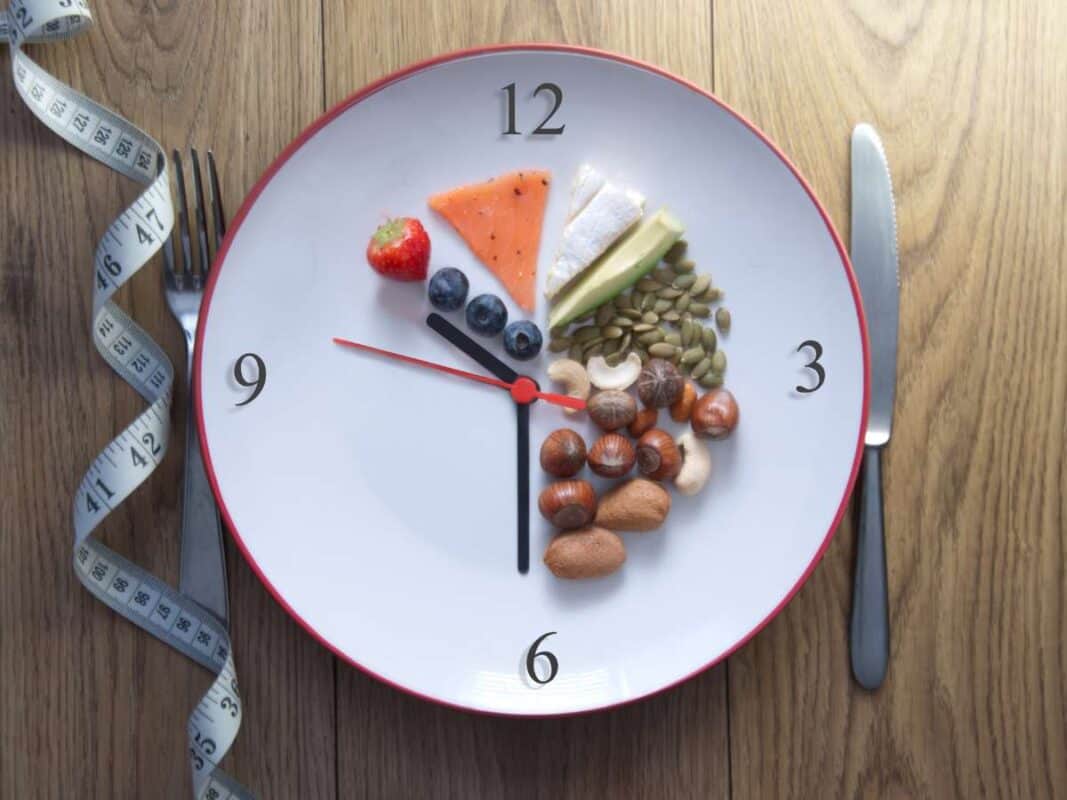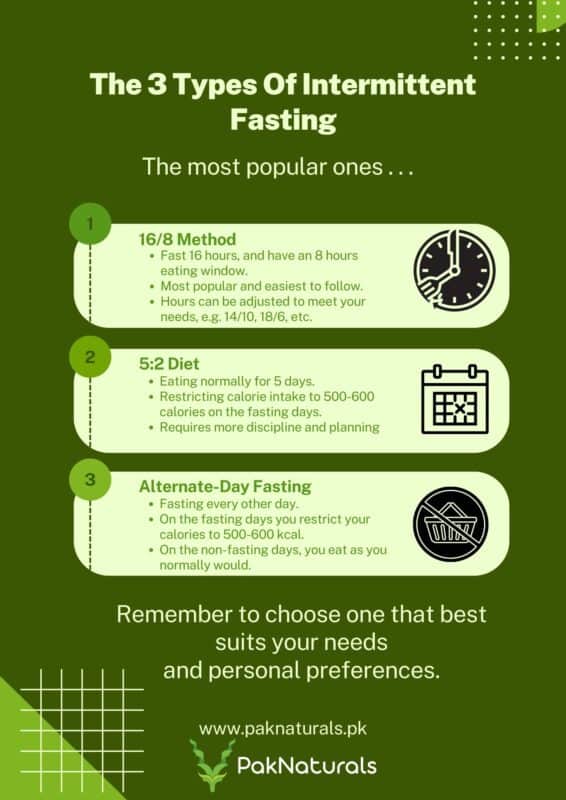Intermittent fasting for weight loss. An extremely popular search term.
But first, a story!
Weight loss sucks. It’s hard. I had a professor once who told me for no important reason at all…
“The easiest thing in the world is to gain weight, and the hardest thing is to lose weight.”
Now keep in my mind the guy had huge tidd (belly) of his own and was the type of guy who would have 3 gulab jamuns with chai but wouldn’t add any sugar cuz he wanted to be “healthy”.
If you’re like this professor and have tried to lose weight with multiple diets, then intermittent fasting might just be for you.
But what exactly is intermittent fasting, and how does it work, and is it for you?
In this ultimate guide, we’ll break down everything you need to know about intermittent fasting for weight loss.
Can intermittent fasting help with weight loss?
Benefits of intermittent fasting.
Some drawbacks of intermittent fasting for weight loss.
Apps to help you to get started.
By the end of this guide, you’ll know everything you need to successfully start intermittent fasting.
So grab a cup of chai (have the sugar, just skip the gulab jamun) and let’s get to it!
What is Intermittent Fasting?
Intermittent fasting isn’t your average diet. In fact, it isn’t even a diet at all!
Think of it as dividing your day into intervals where you can eat, and intervals where you can’t.
During the eating periods, you eat as you normally would. And during the fasting period, you restrict your caloric intake.

Compared to your typical diets where you’re eating certain foods and skipping others, intermittent fasting doesn’t explicitly put any foods off the table.
It’s a clever strategy that revolves around WHEN you eat rather than WHAT you eat, or how MUCH you eat.
That said though, you still do have the option to remain in a caloric deficit during your eating interval. All you have to do is consume less calories than you’re burning.
We’ll get to that later.
Types Of Intermittent Fasting
There are several methods for intermittent fasting. Let’s take a look at some of the most popular ones.
- 16/8 Method
The 16/8 method of intermittent fasting involves skipping breakfast and restricting your eating period to 8 hours, with a 16-hour fasting window.
This method is the easiest to follow for most people since it doesn’t require any special diet or meal planning.
You can eat your regular meals during the eating period, but if you’re looking to lose weight, then you’ll still need to remain in a caloric deficit.
Another great thing about this method is that it can adjustable to suit your needs.
For example, you could make it 14/10, or 18/6, depending on your lifestyle and your goals.
2. 5:2 Diet
The 5:2 diet involves eating normally for 5 days of the week and restricting calorie intake to 500-600 calories for the remaining 2 days.
This method requires more planning and discipline since you need to restrict your calorie intake on specific days of the week.
The two fasting days don’t have to be consecutive, but it’s recommended to spread them out throughout the week. On non-fasting days, you can eat your regular meals.
3. Alternate-Day Fasting
Put simple, fasting every other day.
You eat normally one day and then restrict your calorie intake to 500-600 calories the next day.
This method can be more challenging for some people since it involves extreme calorie restriction on the fasting days.
However, it can be effective for weight loss and has been shown to improve insulin sensitivity and reduce inflammation.

Does Intermittent Fasting Help With Weight Loss?
Before we answer this question, you need to understand the principles of weight loss first.
There is no magic food, pill, diet, or exercise that leads to weight loss. In fact, it all boils down to one very simple idea….
A caloric deficit.
As long as you’re consuming less calories than you’re burning, you will lose weight. It doesn’t matter what foods you’re eating, nor does it matter when you’re eating for that matter.
Heck, you could even be eating pizza as your sole source of nutrition and still lose weight. What matters is that you’re in a calorie deficit.
So, how does time restricting my eating help with weight loss?
By restricting the hours in which you can eat, you’re giving yourself a better chance of success at staying in a caloric deficit.
Think about it.
Let’s say you get hungry at 12 midnight and decide you want to snack on some cookies. The calories you got from those cookies could quite possibly put you in a caloric surplus.
But, if you were following the 16/8 diet, you wouldn’t have that cookie simply because it wasn’t in your eating window. Hence allowing you to stay in a caloric deficit and staying on track.
The exact hours that you eat don’t really have an effect on your weight loss. Again, to reiterate, the only thing that matters is that you’re staying in a calorie deficit.
It really is that simple 🙂
Other Health Benefits of Intermittent Fasting

We won’t get too science-ey with this but rather will just list out some of the common benefits associated with intermittent fasting.
Oh, and just so you don’t think we’re making this stuff up, you’ll find links to verifiable studies for all the enlisted benefits too 😉
Intermittent fasting helps regulate blood sugar levels, promoting better glucose control and reducing the risk of type 2 diabetes.
By optimizing metabolism and enhancing cellular processes, intermittent fasting can provide a natural boost of energy, helping you feel more vibrant and alert throughout the day.
Intermittent fasting stimulates the production of growth hormone, which plays a role in fat burning, muscle growth, and overall body repair.
Intermittent fasting reduces oxidative stress, a major contributor to inflammation, helping to alleviate chronic inflammation and its associated health risks.
Intermittent fasting can lower triglyceride levels, which are a type of fat in the blood, promoting heart health and reducing the risk of cardiovascular diseases.
Intermittent fasting has been associated with lowering blood pressure levels, supporting a healthier cardiovascular system and reducing the risk of hypertension.
Intermittent fasting may enhance brain function by promoting neuroplasticity, improving cognitive performance, and protecting against neurodegenerative diseases.
Some potential drawbacks…uh oh.
Haaaa, if only everything good in this world remained good forever. However, that’s not the way it is unfortunately. Even with things sounding so good, there are a few potential downsides of intermittent fasting that may be the deal breaker for you.
Takes Out The Social Aspect Of Eating

For a lot of us, eating is a social thing. Think about it. All our celebrations, achievements, and milestones revolve around food.
What do we look forward to on Eid? Food.
What do we look forward to at weddings? Food
Birthday parties? Food.
What do all these things have in common? Food, and people.
The restricted eating window in intermittent fasting may present a challenge when it comes to social gatherings around food.
If you’re particularly strict about your eating window, how terrible would it be that you miss out on late night romantic dinners with your spouse, family dinners, and maybe even just going out for impromptu ice cream with the family ? Not so fun.
Not only for you, but for the people around you too.
Low Energy

Yes, yes. We did just list out high energy as a common benefit of intermittent fasting. But the truth is, this doesn’t work for everyone. Some people just can’t get without having breakfast.
A 2016 study found that some intermittent fasting participants experienced minor physical ailments including: feeling cold, constipation, headaches, and lack of concentration.
All the stuff that you’d feel when you’re not properly fueled up.
So if you’re one of those people who can’t get their day going without a hefty nutritious meal in the morning, then intermittent fasting may not be for you.
Increased Hunger
Picture this. It’s your first day of trying out intermittent fasting following the 16/8 rule.
You’re nearing the end of hour 15. Eyes on the clock. Stomach growling like a hungry animal. The only thought on your mind, food.
Tik, tok, tik, tok, DING. It’s time!
You’re hungry. Insanely hungry, and you devour everything in your fridge. You keep eating and eating,
“But it’s okay”, you think, “I didn’t or 16 hours, so I still am on track with my weight loss”.
Except you’re not. You ate more than you normally would.
Intermittent fasting can result in uncomfortable hunger levels, and for some people this might make them eat more than they would normally eat when their eating window opens up.
Intermittent fasting can be effective for many individuals without triggering excessive hunger. But, ultimately it boils down to your personal hunger and fullness signals.
Hungry later in the day and love three big meals? Intermittent fasting could be your jam! It lets you tailor your eating schedule to fit your hunger cues.
But if you’re a fan of smaller, frequent meals and feel hungry in the morning and at night, intermittent fasting might make you hungrier during fasting windows.
Digestion issues 🙁
Us desis have inherent digestion issues anyways. Seriously though, why are our genetics so bad?!
With increased hunger, a lot of people end up consuming large amounts of foods in one sitting during their eating windows.
This can put a lot of strain on the digestive system and cause symptoms such as gas, cramping, bloating, and indigestion.
Remember, everyone’s body is unique, so not everyone will experience this.
However, it is something to keep in mind that the amount of food you consume in one sitting, it may have an effect on your digestive system.
It’s all about being aware of how your body responds and finding a balance that works for you.
Apps To Help You Get Started With Intermittent Fasting
Ready to take on the world of intermittent fasting? We’ve got your back. Here are some amazing apps that will make your journey a breeze. These nifty tools will help you get started and stay on track with your intermittent fasting goals:
- Fastient: This app is a true fasting companion. With Fastient, you can easily track your fasting hours, monitor your progress, and also journal your thoughts and experiences. It’s like having a personal fasting coach in your pocket.
- Zero: Say hello to simplicity! Zero offers a clean and user-friendly interface to track your fasting windows and keep you motivated. It also provides educational resources and community support to keep you inspired throughout your fasting journey.
- MyFast: Ready for some personalized fasting guidance? MyFast tailors your fasting schedule based on your preferences and goals. It also offers features like meal planning, progress tracking, and helpful reminders to keep you on the fasting track.
- LIFE Fasting Tracker: Get ready to embrace the power of community support. LIFE Fasting Tracker connects you with a vibrant community of fasters, allowing you to share your progress, seek advice, and stay motivated. Plus, it offers informative articles and challenges to level up your fasting game.
- FastHabit: If you’re all about flexibility, FastHabit is your go-to app. It lets you customize your fasting schedule, provides fasting timers, and offers insightful analytics to help you understand your fasting patterns better.
Take-home Message
So you made it! Congratulations on taking the time to educate yourself with content that can help you in becoming your best, healthiest self.
Whether you’re using intermittent fasting for weight loss purposes, or just for maintaining a healthy lifestyle,
It is crucial to include foods in your diet that you enjoy. Why? Because the goal is that you stick with it for the long run.
AND also, as a bonus tip, make sure you’re getting enough protein in.
The shorter eating windows in intermittent fasting can make it difficult to hit your daily protein goals. A good option to bridge this gap is using a high quality protein supplement.
You can use any, but our very own PakNaturals Hyper WPC 80 will definitely not disappoint. It’s only 2 ingredients, packs a solid 24g of protein per scoop, and the best part?

You get to flavor it yourself, anyway you want, with our fabulous FlavBurst flavor drops!
Now that you’re equipped with all the about intermittent fasting, decide for yourself, is it for you?
And if it is, go take that leap! Your health, happiness, and vitality are waiting.

